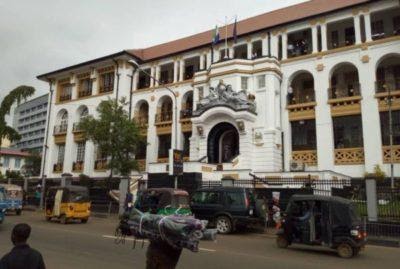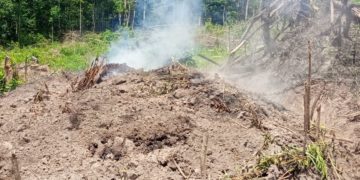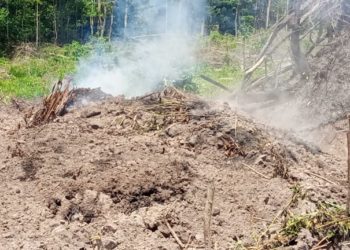
A magistrate court in the Sierra Leone’s capital, Freetown has sentenced a Chinese man to jail term after he was found guilty of electricity theft.
Mr Li Shichao, who runs a mechanical workshop in the east end of the city, illegally tapped power from the national grid and sold it to the public, the court heard.
Police prosecutors said Mr Li sourced the power from the Electricity Distribution and Supply Authority (EDSA) to his workshop, which is located in Cline Town, and from where he in turn distributed it to various houses in the area.
The case was heard by the Pa Demba Road Magistrate Court in the west end of the city.
In his verdict, the magistrate sentenced Mr Li to four years imprisonment, with the option of paying a fine of the equivalent of US$1, 500.
According to reports, the sentence was reduced because the convict pleaded guilty to the crime, thereby avoiding delaying the court’s time.
The case which has attracted wider public attention is just one of many before the courts in Sierra Leone, and it was unearthed as part of a crackdown on electricity theft nationwide, which the government has blamed for the poor state of power supply in the country.
Only about 20 per cent of Sierra Leone’s seven million population has access to power, which is mostly erratic in nature.
In May this year, the Energy Ministry suggested the establishment of a special court to address the issue of electricity theft which it says is as one of the reasons for the poor power supply across the country. The ministry says not only are cases concerning electricity theft getting protracted in court, but that often people who are found guilty get lenient of sentences or fines that do not commensurate their crimes.
In 2015 the power sector was unbundled as part of efforts to enhance it. EDSA was created out of that as a government agency tasked with distributing power, while generation was privatized.
The Authority says it spends huge sums of money in purchasing power from the government owned Electricity Generation & Transmission Company (EGTC) and Independent Power Providers (IPP), to meet the growing demand of electricity in Freetown and surrounding communities. But this effort, it adds, has been stifled by fraudulent activities, including illegal connections.
An investigation two years ago by the Authority revealed that even companies were involved in the illegal acts, like supermarkets and hotels.
In 2019 a Chinese run housing estate was found to have illegally connected itself to the wrong tariff system, thereby consuming more power than it was paying for.



















